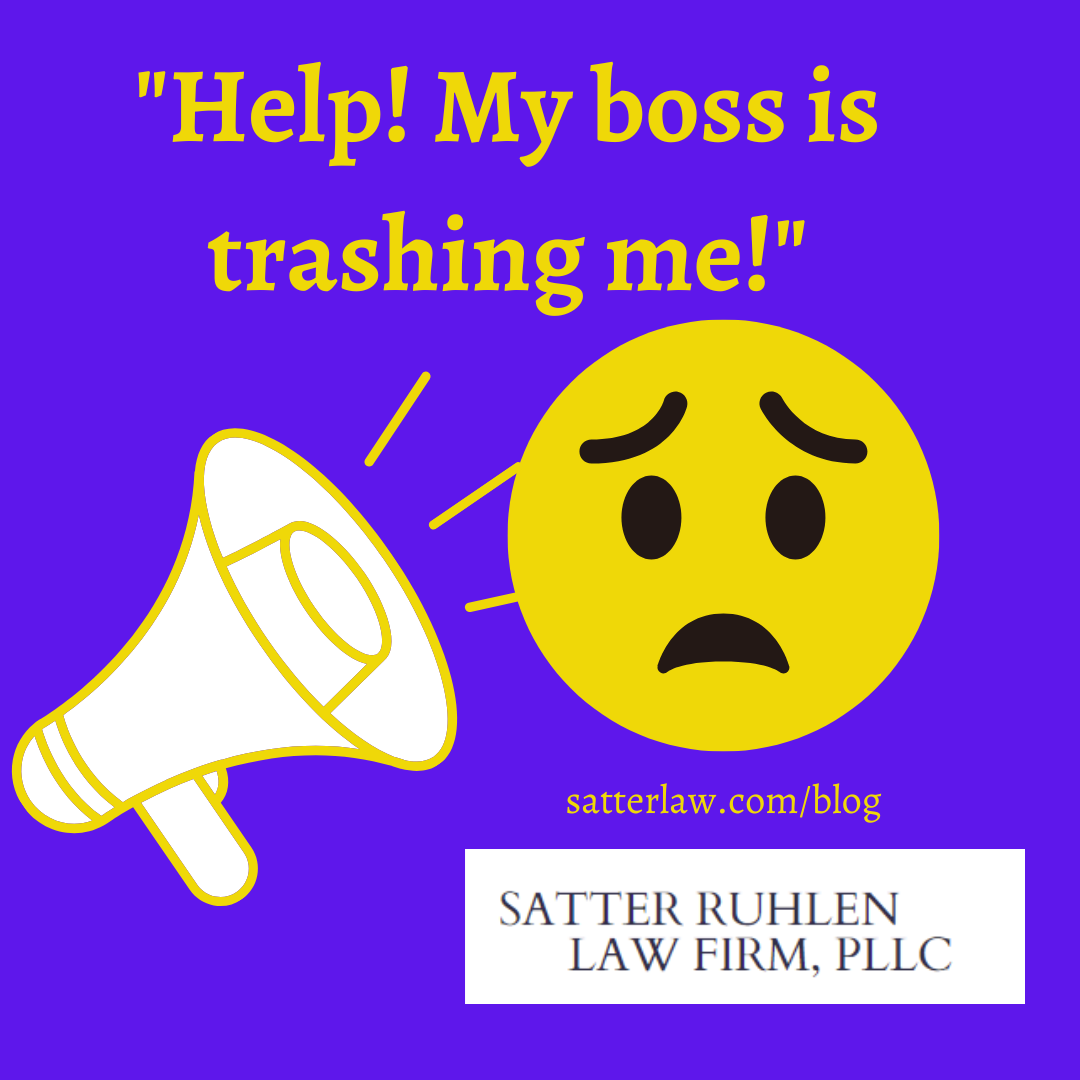
Bosses sometimes say terrible things about workers. And those statements can have consequences for an employee’s livelihood.
Warning! A real defamation claim is much more nuanced and complicated than any blog, TikTok, or Instagram post can convey. Defamation is a common law claim which varies from state to state. Make sure you speak with a reputable workplace attorney in your jurisdiction about your specific situation.
To be truly defamatory, a statement must be 1) false, 2) published, 3) intentional, and 4) cause monetary damage.
- In order to be defamatory a statement has to be a falsehood. So, if the boss is telling people that you are constantly late, and you are in fact constantly late, that’s not defamation. On the other hand, if you can prove that the statements about your tardiness are false, that is one element of defamation.
- In addition to being a falsehood, the statement has to be “publicized” which means the employer has to share the false comment with someone else. If the false comment occurs during a phone conversation or in a meeting, unless you have witnesses who are willing to back you up, you might have a hard time proving it. But if the employer writes it down and then sends it to other people, then it might be easier to prove publication.
- Intent means the employer meant, or recklessly disregarded the possibility, that the statement would be false. This is a tough element, as no one can crawl into the boss’s head to understand what they were actually thinking. But if there’s some plausible indication that there was a malicious motive behind the statement, that might help with the “intent” element.
- Finally, you have to show monetary harm, which means showing a causal connection between your inability to get another job and the employer’s comments. This is the hardest element, as employers may have multiple reasons for not hiring particular person—which may or may not include false statements made by the prior employer. Sometimes employees hire private investigators to find out what former employers are saying during reference calls. That information, while expensive, can establish a causal connection.
Employers have several defenses to a charge of defamation. For example, most statements made during evaluations, employee counseling, grievance proceedings, and disciplinary proceedings are privileged, meaning even if they are false, the employer is allowed to make them. Additionally, statements made during legal proceedings are absolutely privileged. Moreover, opinions are not defamatory, so if the boss precedes the false comment with the words “in my opinion” then it’s going to be harder to prove defamation. And if you consent to the employer making a statement, then the employer is allowed to make the statement without being accused of defamation.
If you go through the above analysis and decide you want to try to pursue a claim, the next step is to go to an attorney. It’s important to make sure you feel comfortable with the attorney and understand, up front, the amount of time and money you might be required to spend to pursue the matter. The attorney will help you determine how strong the claim is, what kind of damages you might be looking at, and what options you have.
When the boss is truly besmirching your name, it’s worth the fee to speak with a reputable workplace attorney in your state.

